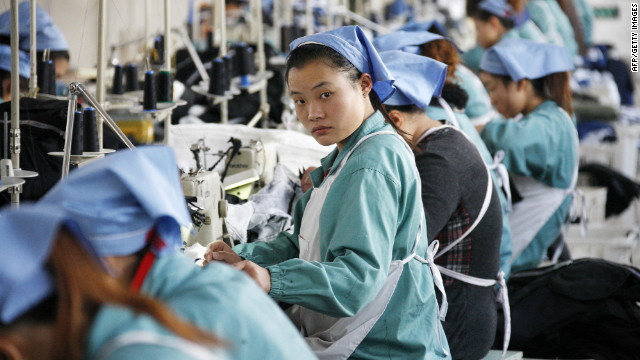|
As the world economy shows positive signs of recovery, Guangdong province, an export hub in south China, is also stepping out of the shadow of the global financial crisis, with insiders and experts still warning of uncertainties. In September, the province's total imports and exports were down 8.3 percent year-on-year at $60.6 billion, but the rate of decline was narrowed below a double digit for the first time this year, according to the local customs office. It was also the first time monthly imports and exports topped $60 billion in value this year. "We can say the decline rate now has been narrowing. It is not going down as sharply as the fourth quarter of last year," said Cai Kang, vice director of the Bureau of Foreign Trade and Economic Cooperation of Dongguan, one of the province' manufacturing centers. That achievement could be partly attributed to the local government's proactive measures aiming to stabilize exports while optimizing environment for businesses in face of weak foreign demand, he said. However, Xiao Zhenyu, a government official in charge of foreign trade in provincial capital Guangzhou, only expressed cautious optimism. "Despite encouraging statistics, we are far from being assured that foreign trade recovery has gained a solid foundation," he said. "Although foreign demand has increased for some products, the general situation shows few signs of increase," he said. The Chinese central government's judgment of the current global economy is also cautious, saying that the global recovery would be a slow process, according to the State Council, the cabinet. Some local companies have been altering their business strategies, including diversifying products and shifting exports to the domestic market in order to survive the global downturn. The Real Faith Group in Foshan, a company that used to focus on shoe exports, closed all but one of its shoe factories, and shifted its primary business to light-emitting diode (LED) sales. "We had transformed from a shoe factory to an LED manufacturer in the crisis. We own the intellectual property of our product. This helped us develop the Japanese market," its manager Wan Xiaocheng said. This could be an industrial readjustment some experts are calling for. Xiang Xiaomei, director of Institute of Industrial Economy of Guangdong Social Sciences, said it was internal restructuring that helped some foreign trade companies survive and regain orders. "Without thorough structural readjustment, the future of foreign trade will still be at hazard," she said. Cai Kang said most the foreign trade companies in Dongguan nowadays are the ODM (Original Design Manufacturer) models instead of the traditional OEM (Original Equipment Manufacturer) models. Some are even trying to transform into OBM (Original Brand Manufacturer). He said the government needs to play a role in guiding this shift. Cai said the government is encouraging industrial readjustment and upgrading, but it is the companies that will make the decision. Paddy Textile, an OEM in Zengcheng under Guangzhou, lost 80 percent orders in a single month tracking the financial crisis. "Workers wanted to quit because wages slump," said Zhong Qiyun, the company manager. "But we didn't lay them off or shut down any of the product lines, because we want to manage through the crisis." "This month the number of purchase orders has returned to the level in last June when crisis was still on the way," he said, adding the company has also shifted its major focus from overseas markets to domestic ones. Paddy is lucky one among the 3,000 struggling clothing companies in this small city. Compared with the bankrupt ones, it has managed through the worst of the crisis. But asked about industrial transformation, Zhong said that was not on his mind. "Thirty years ago, Hong Kong faced the same problem. There were thousands of garment manufacturers there, but how many can become big brands? The chance is too small."
|
|
Chinas export hub in recovery, uncertainties remain
Updated: 2009-11-10 Source: China Daily

Recommended News
Photo Gallery
Most Popular



